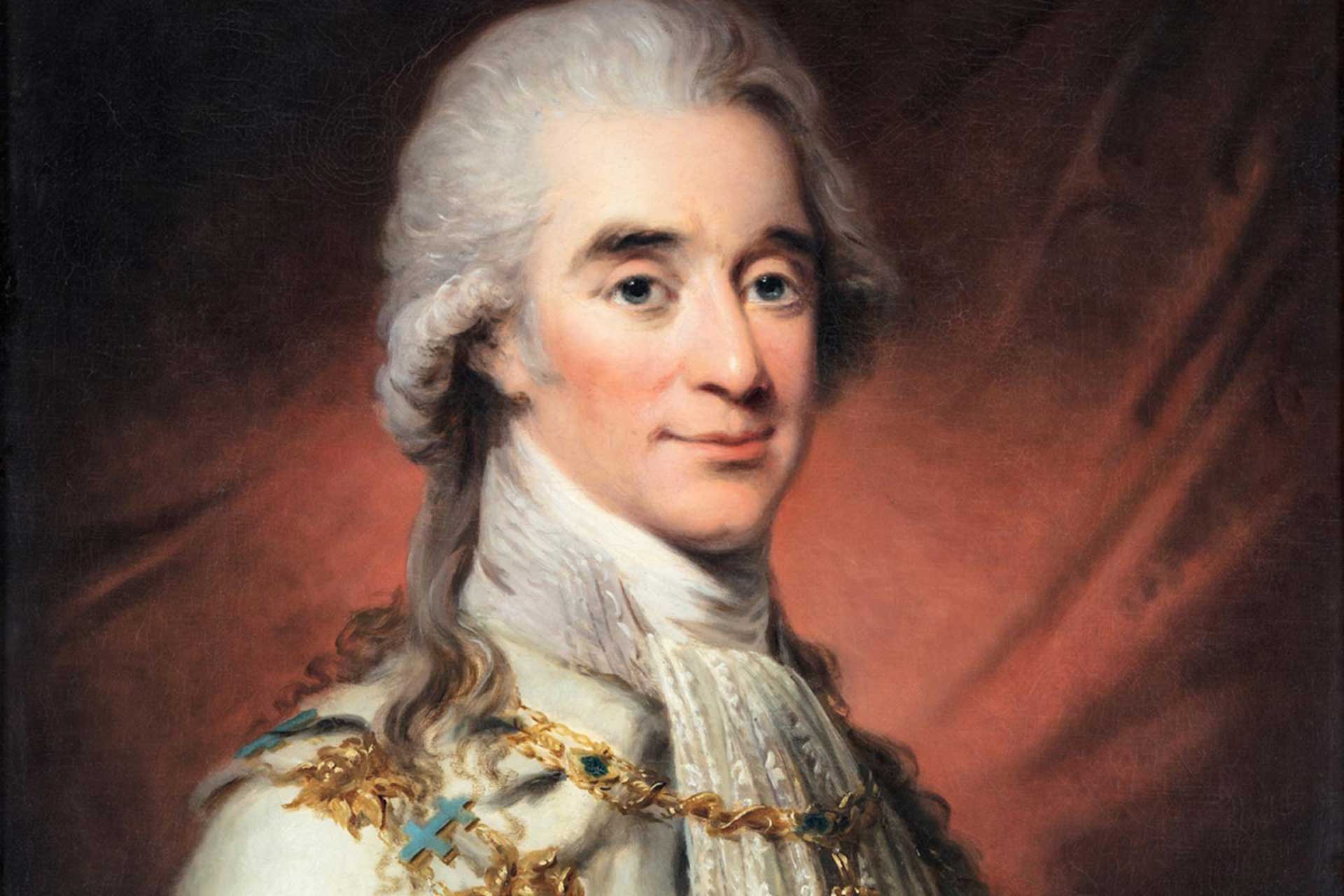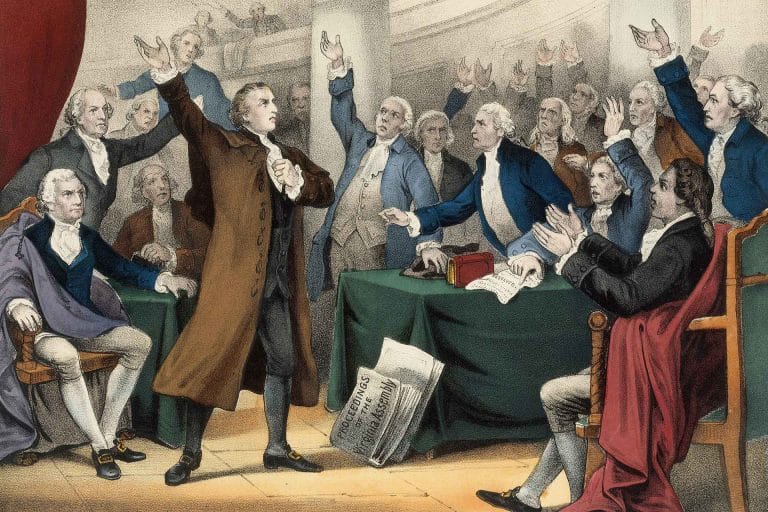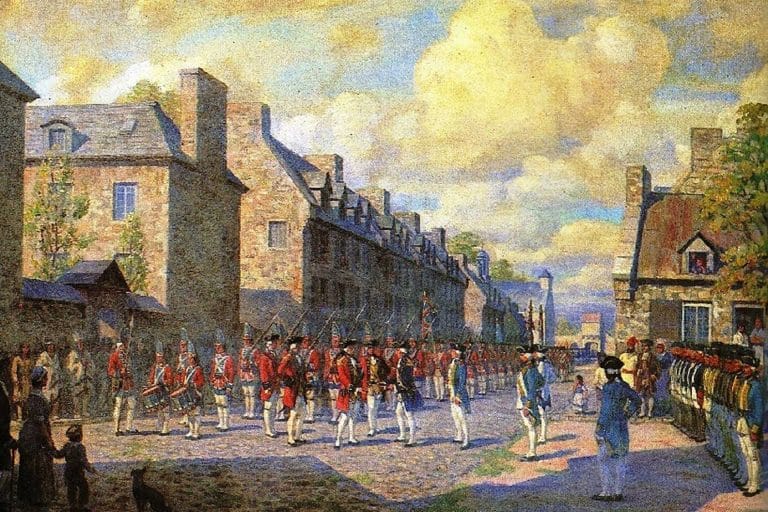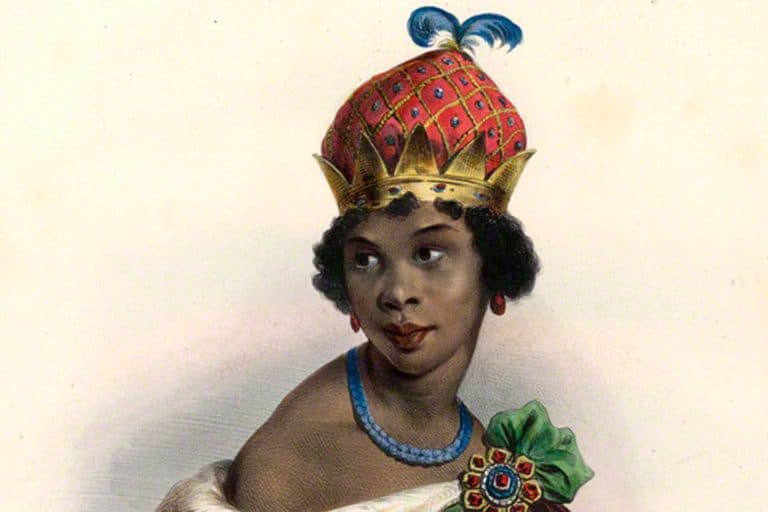Axel von Fersen: A Life at the Crossroads of History
Axel von Fersen the Younger was a man of his time, born into a period of great upheaval and change in Europe. Monarchies were overthrown by revolutionaries, empires were at war, and ideas of freedom and democracy were spreading like wildfire. He was born into a family of Swedish aristocracy in 1755 and travelled the world, serving as a soldier in the American Revolution, and eventually becoming the close confidant of Marie Antoinette at the court of Versailles. Fersen’s life was emblematic of the uncertainty and instability of the time, where privilege and power could be lost in an instant.
Axel von Fersen had a distinguished career that was marked by loyalty, diplomacy, and tragedy. He was involved in the ill-fated escape attempt of the French royal family from Varennes and was a key figure in the events leading up to the French Revolution. In his personal life, Fersen was known for his close relationship with Marie Antoinette and his loyalty to the French monarchy. He also had a significant impact on Swedish politics, serving as the Prime Minister of Sweden for a time.
However, his involvement in the French Revolution and his loyalty to the monarchy led to his eventual downfall and exile from France. Fersen’s life is a testament to the complexities and challenges of the time, as he navigated the shifting political landscape of Europe in the 18th century.
Noble Beginnings
Axel von Fersen the Younger was born in 1755 into one of the most distinguished aristocratic families in Sweden. The von Fersens were one of the wealthiest and most influential noble houses in the country, with Axel’s father, Axel von Fersen the Elder, serving as a high-ranking statesman and advisor to the Swedish crown. As the son of a powerful statesman, Fersen was born into the upper echelons of Swedish society and was expected to continue the family’s tradition of service to the state. He was provided with the best education and given access to the highest circles of society, both in Sweden and abroad.

Fersen received his early education in Sweden, where he was taught the languages, history, and cultural etiquette befitting a young nobleman. He was a disciplined and diligent student, with a particular talent for languages and history. This education was both a privilege and an expectation, and Fersen was groomed from an early age for a career in public service, with a particular focus on diplomacy and international relations. He was encouraged to travel and learn about the world beyond Sweden’s borders, and he soon began to acquire the polish and sophistication expected of a man of his status.
In his early years, Axel von Fersen traveled extensively throughout Europe, first as part of his formal education and later as a young diplomat. These experiences were crucial in shaping his worldview and his understanding of his place in society. Fersen was well-versed in the political and cultural developments of his time and was able to navigate the complex social hierarchies of European court life with ease.
Fersen was exposed to a range of intellectual and philosophical ideas during his formative years, particularly those of the Enlightenment. He had access to a wide range of books and was well-educated in the classical and modern literatures of Europe. He was familiar with the works of philosophers like Voltaire and Rousseau and the broader debates about the role of monarchy and the nature of government that were taking place in the salons and universities of Europe at the time. He also had a personal interest in the latest intellectual and cultural trends, which would later inform his political and military actions.
Fersen’s travels and exposure to European court life also played a significant role in shaping his understanding of himself and his place in society. He spent time at the courts of several European monarchs, including the French court at Versailles. These experiences allowed him to develop a deep appreciation for the arts and culture of the European nobility and an understanding of the importance of diplomacy and personal relationships in international relations.
Fersen’s aristocratic upbringing, education, and travels laid the foundation for the events that would later make him a key player in the tumultuous political and military events of the late 18th and early 19th centuries. His status as a member of the Swedish nobility and his experience as a diplomat gave him the connections and skills necessary to navigate the complex political landscape of the time. At the same time, his exposure to Enlightenment ideas and his personal interest in the intellectual and cultural developments of his time informed his political and military actions, shaping the course of history.
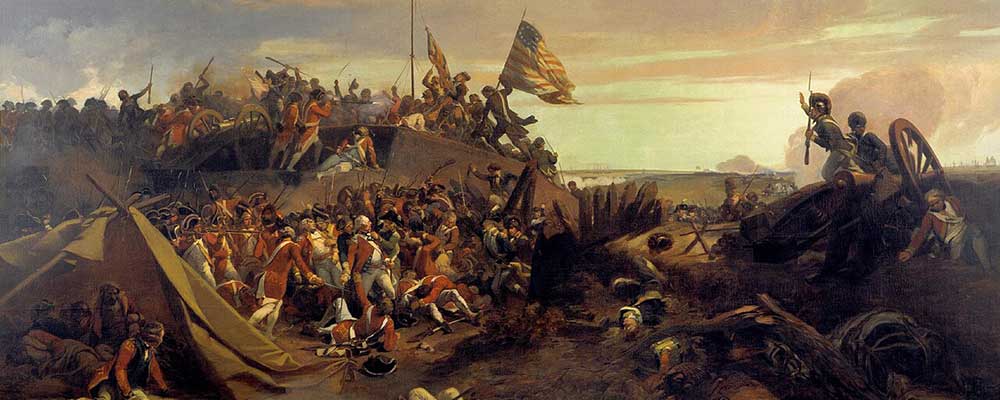
Soldier of Fortune
Axel von Fersen did not start his military career in Sweden. In his early 20s he saw action in the American Revolutionary War, impressed by both the chance to add to his martial credentials and the spirit of adventure in fighting in the New World. He joined the French expeditionary forces commanded by the Comte de Rochambeau, a French nobleman with large forces at his disposal who had allied with the American colonists in their fight against British rule.
He took on the duties of an aide-de-camp, at one and the same time learning strategy from the top down and gaining direct experience of the war. A young European noble could do few better things than to take part in the American Revolution, and Fersen’s was no exception.
Axel von Fersen fought in the Siege of Yorktown in 1781, which was the final battle in the war. He saw action alongside French officers and in his role as interpreter was close to the command in charge of forcing the surrender of General Cornwallis. Fersen would later write about the importance of the American campaign to France, but in the short term it elevated both his own standing and that of France. Yorktown’s victory at Yorktown earned him plaudits and made the French not just a regional but a world power, something Fersen could hold his head high as he returned to Europe after the war.
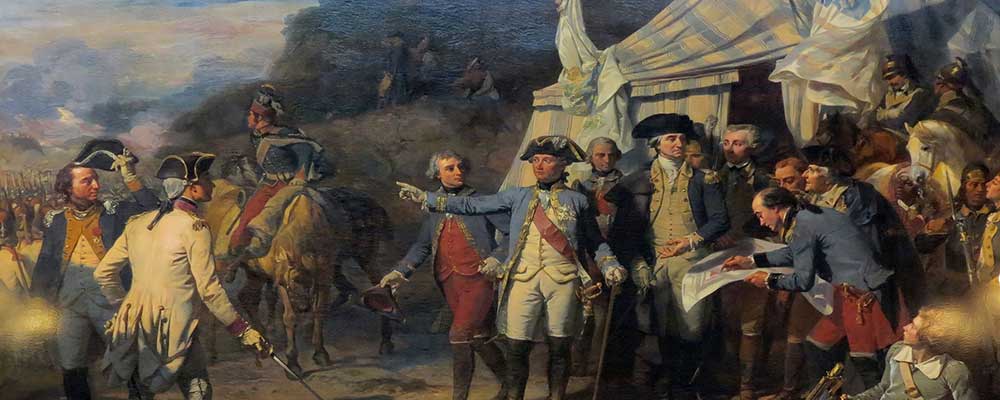
The American War of Independence made Axel von Fersen friends with French officers who would follow him in his future career. His connections with Rochambeau and Lafayette in particular would tie him to two of the most famous people of the period and would make Fersen no stranger in any of the highest social circles. The friendships he made expanded his influence and his reputation as a worldly soldier, and later helped him with the diplomatic skills required to deal with some of the great men and women of the period.
Axel von Fersen’s time in the Americas brought him face-to-face with the world of revolution, though his sympathies did not lie with those who revolted. He had seen men and women fight in freedom’s name, but this did not change his worldview. To him, liberty was best balanced with order, best represented by an enlightened monarchy rather than a bloody republic. It was these beliefs that he held most to in the 1790s, when the life of the French royal family was under threat and Fersen became their most important supporter.
At the Court of Versailles
Following his military service in America, Axel von Fersen returned to France and the doors of Versailles. His charisma, noble heritage, and martial achievements afforded him access to high society in France’s cosmopolitan capital. French fashion, politics, and gossip set the standard in Europe, and Fersen quickly ingratiated himself with its most elite. Elegant and well-read, he impressed courtiers but his connection to Marie Antoinette made his ascent through French high society.

Fersen became one of the queen’s most intimate confidants, a relationship that has sown rumors and legends both in his own time and after his death. The closeness of the two, sometimes recounted as a romantic relationship, was viewed by others as suspiciously personal for a man who was not her husband. Historians still debate the true nature of their relationship but it is clear that Marie Antoinette confided in him for advice, solace, and emotional support, and he earned her lasting trust at a court otherwise known for scheming and backstabbing.
Fersen’s position as one of the queen’s confidants placed him not only in the role of gentlemanly companion but also of trusted counselor. He was loyal, discreet, and careful not to overstep the queen’s difficult position. Their correspondence shows a relationship that was both affectionate on a personal level and understanding of the national mood. As France lurched towards instability, Fersen found himself counseling and supporting a queen who was becoming increasingly isolated by her own subjects.
In his years at Versailles, he also became acutely aware of the changing mood of France. Once symbols of power and refinement, the excesses of the court became easy targets for pamphleteers and orators. Ordinary people saw the glamour of Versailles as profligate and corrupt. As the queen’s confidant, Fersen’s intimacy with the queen would land him on both sides of the coming conflict. Pamphlets called the queen “Madame Deficit,” a symbol of the monarchy’s financial crisis. He observed as Enlightenment ideals mixed with popular resentment and pointed towards the coming storm of the French Revolution.
By the late 1780s, Axel von Fersen’s intimacy with Marie Antoinette would put him in an increasingly difficult position. Attachment bound him to the monarchy during a time when fidelity would soon be turned against itself. But he was loyal to a fault and would not waver. As political tensions grew, he resolved to stand by the queen through the darkest days of the French Revolution, binding his own fate to the tragedy of that conflict.
The Flight to Varennes
The French royal family, under the reign of Louis XVI and Marie Antoinette, was under increasing threat by 1791. Louis XVI and Marie Antoinette were effectively prisoners of the people of Paris and had reason to fear for their lives. Axel von Fersen, who was greatly in love with Marie Antoinette, was involved in the planning and financing of the escape. They had convinced the royal family to leave for Montmédy, near the eastern border, where royalist troops were still stationed.
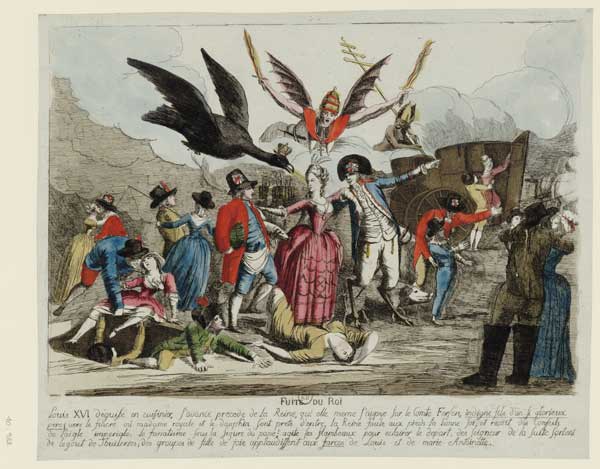
Axel von Fersen became the main planner of the flight. He was fearless in the preparations he made and was in charge of all the details. Fersen personally drove the carriage with the king, the queen, and the children out of Paris on the night of 20 June. When the family reached the city gates, Fersen acted as driver, while two men posing as servants hid in the back. He played an essential role in the escape during the initial part of the plan. He helped the family to cross Paris undetected, and then left to avoid raising suspicion. The carriage left Paris and the family was ready to leave France.
It was in the countryside that the plan started to go wrong. The royal carriage was large and slow due to the secrecy of the mission and drew attention to itself in Varennes, a town along the way. Officials of the town recognized the king, who had been recently featured on coins, and the family was detained. News of the royal family’s failed flight spread and the family was returned to Paris under armed guard. It was a degrading experience to be escorted back under guard, observed by jeering crowds who now perceived the king as an enemy of the people.
The Flight to Varennes had significant consequences for the monarchy. Louis XVI was now seen as a traitor by the people and there was an increase in support for the republic. Marie Antoinette was also suspected of being a foreign enemy plotting against France. The increasing radicalisation of the Revolution would result in the king’s trial and the rise of the republic. Axel von Fersen’s role was not discovered at the time,6 but was another display of his love for the queen.
Exile, Diplomacy, and Tragedy
Axel von Fersen’s involvement in the Flight to Varennes was revealed even before the royal family was returned to Paris. A warrant was issued for his arrest, and he left France to join others at Koblenz, where he entered the service of the Comte d’Artois, the king’s brother who was living in exile. Charles Alexandre de Calonne, the former Controller-General of Finance, and the comte also involved themselves in trying to encourage the great monarchies of Europe to make a joint intervention, one that was necessary to protect all crowned heads, rather than appearing to be an effort to help only the French royal family.
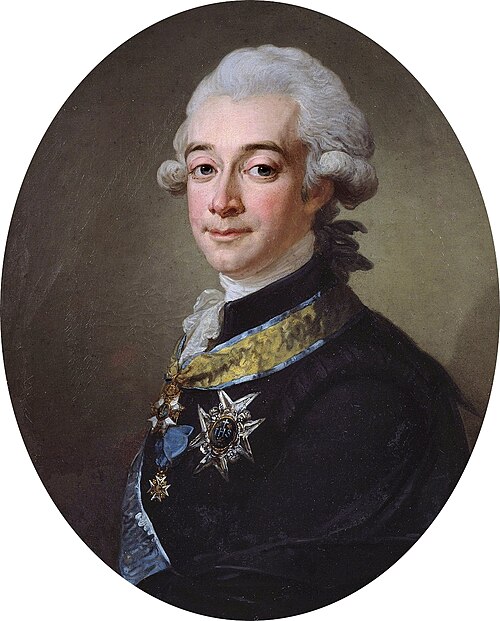
Fersen began to play an active role in these diplomatic missions. With a background in military service and a reputation as a personal friend of the queen, he acted as an envoy and a go-between, shuttling between the various courts in an effort to push them towards action. He negotiated with Austrian and Prussian officials, urging military intervention to restore order in France. But the mutual jealousies and political hesitations of the great powers held firm, and little was achieved beyond resolutions of sympathy. Fersen, in despair at their inaction, pressed on, certain in his belief that outside pressure was the only thing that could save the monarchy.
Fersen’s attachment to the queen was unwavering. He used secret correspondence to keep Marie Antoinette up to date with diplomatic developments, and to offer support and advice as her situation became more desperate. These letters, written in a time of extreme danger when even their writing could have been a capital offense, show the close relationship that had been forged. Fersen appears to have believed that Marie Antoinette’s life was inextricably linked to the survival of the monarchy in France. He therefore gave himself up to her service single-mindedly.
Marie Antoinette’s tragic end came in 1793. In January, the king was executed, bringing an end to centuries of Bourbon rule. In October, the queen was put on trial before the Revolutionary Tribunal. Found guilty of treason, she was executed. Fersen, who was at this time back in Sweden, was stricken by the news. He wrote in his diary that “the queen’s death has killed me.”
With both the king and queen dead, Axel von Fersen’s plans for diplomatic restoration had been dashed. His work in their service continued, though now more symbolic than practical. He served as a major in the Swedish army in the war against France and continued to support the exiled Bourbon cause for as long as he could. However, the years of exile made him increasingly hard and set apart in his devotion. The memory of Marie Antoinette consumed him, turning his work into a labor of remembrance as much as politics.
Axel von Fersen’s Final Years in Sweden
Axel von Fersen had returned to Sweden after decades of exile and diplomatic service. He assumed a prominent role in Swedish national politics and by 1801 had become Marshal of the Realm, the highest office in the Swedish nobility after the King himself. He was in a position of unrivalled power and influence as the culmination of a life spent in loyal service to the monarchy. But the political situation in Sweden was volatile and polarized, and Fersen, as a member of the aristocracy with close royalist ties, quickly became the focus of mounting hostility.
Things came to a head in 1810 following the death of Crown Prince Charles August. In February of that year, Charles August had collapsed and died of apoplexy while inspecting troops in Scania, but a rumour had spread that he had been poisoned by agents of the deposed Gustav IV Adolf. Fersen and his sister Sophie were accused by insinuation and anonymous pamphlets of being behind the death of the Crown Prince, and even though the accusations had no basis in fact, public outrage was directed against Fersen.
Death threats followed, and every time Axel von Fersen appeared in public, he was met with abuse and shouted insults. Hostility reached a climax in June, and on June 20, while taking part in the funeral procession of Charles August in his official capacity as Marshal of the Realm, Fersen became the victim of a mob in Stockholm. The city was tense, and when the funeral cortege entered the capital, the crowds showered Fersen’s carriage with curses, coins, and stones. He was met at the procession by a team of guards, who stood by and watched without taking action. At Riddarhustorget, the crowd blocked the funeral procession, unharnessed Fersen’s horses and dragged him out of his carriage.
Fersen thrashed about, trying to free himself, but was pummeled, his epaulettes, cocked hat, and ribbons all torn from him and trampled underfoot. General Isaac Silfversparre, at the head of the Life Guards, arrived and did nothing to stop the massacre. General Silfversparre then suggested arresting Fersen and putting him on trial, but the crowd reacted with increased rage. Fersen was deserted by the men who had been escorting him and was dragged into a nearby building by his captors. The crowd then followed and dragged him back out into the square.
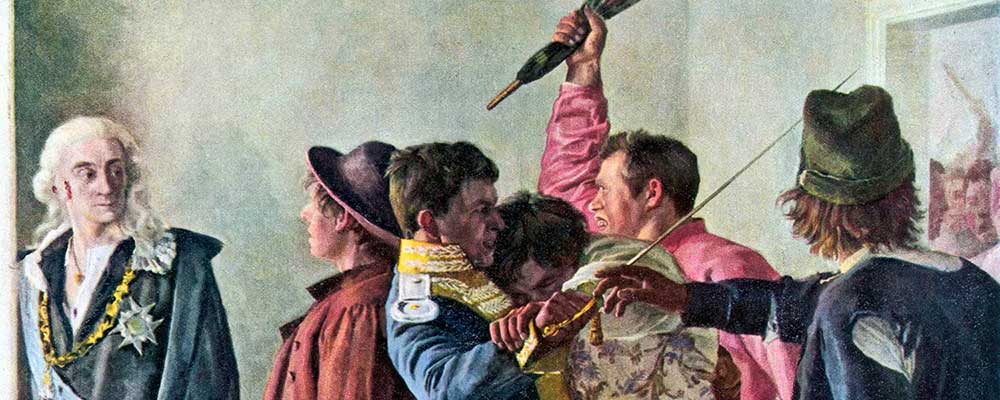
A savage beating followed. A witness of the incident stated that Fersen’s gloves were torn from his hands and his coat torn in pieces. He was also beaten with such force that his skin was scraped off and he was hurled to the ground. The beating went on for some time before a Swedish-Finn named Otto Johan Tandefelt leapt onto Fersen’s chest, bending his ribcage and killing him.
Baron Gustaf Armfelt famously said of Fersen’s death that “The government had Fersen in a pen; he was exposed to the people, and they were free to eat of the sacrifice the king had made to their fury. Where in the world could such a thing be possible in broad daylight and with the palace surrounded by soldiers?” Axel von Fersen became Sweden’s highest-ranking casualty after the King.
A Noble who Lived at the Crossroads of History
Less than half a year later, Axel von Fersen and his family were exonerated of all responsibility in the death of the Crown Prince Charles August. It was too late to spare him a fate more merciful, but not to restore his reputation. He was allowed a state funeral with full honours after all. His sister Sophie Piper left Stockholm for her Löfstad manor outside Norrköping, where she built a monument to her brother, with an inscription mourning him and describing his bravery in his last hours. His memory, the epitaph reads, “will be sanctified by blessings and tears”.
Axel von Fersen is a man who lived at a time when his world was still coming to terms with its monarchical past and finding itself in a future ruled by the forces of revolution. He stood beside his kings and queens at their darkest and direst moments. He raised his voice, but not his sword, to rally the rulers of Europe to the common cause against revolution. He bore witness to the end of a way of life he had served and sworn to protect. Heroism, chivalry, gallantry, devotion, and tragedy are all parts of the legend that surrounded Fersen as he lived it, and as it survived long after his death.

